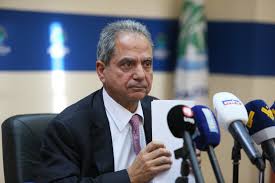After decades of mismanagement and prolonged blackouts that have undermined the quality of life for millions, Lebanon’s new Minister of Energy and Water has pledged to reform the country’s electricity sector. At the heart of this long-overdue reform is a commitment to finally appoint the Electricity Regulatory Authority (ERA)—a step mandated under Law No. 462 since 2002 but deliberately delayed for over 20 years to preserve political control over the sector.
LIMS welcomed this development as a turning point for restoring dignity and basic rights to citizens. The uninterrupted access to electricity is not merely a technical issue—it is a matter of human dignity, safety, and the ability to live with decency. Children studying by candlelight, families sleeping without fans or heat, and hospitals operating on unreliable backup power are daily realities in Lebanon that no population should endure.
Through its Green Grid Leb initiative, LIMS stressed that the ERA must be granted full independence to open the sector to new entrants. A transparent, autonomous authority can break the monopolistic and clientelist grip that has left Lebanon in the dark for too long. Liberalizing the sector and fostering competition would enable private investment, create jobs, and most importantly, deliver a stable, sustainable, and high-quality power supply that respects every citizen’s right to a dignified life.
The ERA’s mandate should include unbundling the sector into production, transmission, and distribution. It should also issue regulations to establish a level playing field for all operators, monitor adherence to technical and service standards, and ensure open and fair access to infrastructure. Consumers should no longer be hostage to a broken system but should be treated as empowered stakeholders whose wellbeing is at the center of energy policy.
In parallel with establishing the ERA, LIMS advocates for a people-centered option: allowing local-level production and distribution of electricity, particularly through private sector initiatives. Municipalities and communities—many of which have already organized informal power alternatives—should be empowered to legalize, regulate, and expand local energy solutions. Ultimately, Lebanon’s energy reform must be about more than fixing wires and transformers. It is about rebuilding trust, empowering people, and delivering the fundamental conditions necessary for a dignified life.
- Ministers Prevented It And Serious Damages Due To Its Absence… Will The Regulatory Authority Illuminate The Darkness Of Electricity? April 7, 2025: Lebanon 24, Article AR

